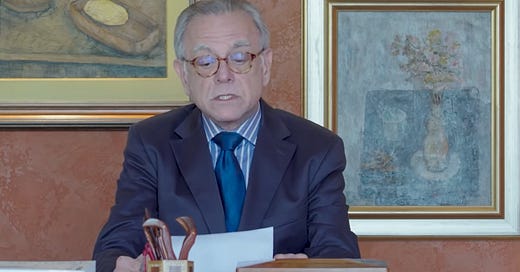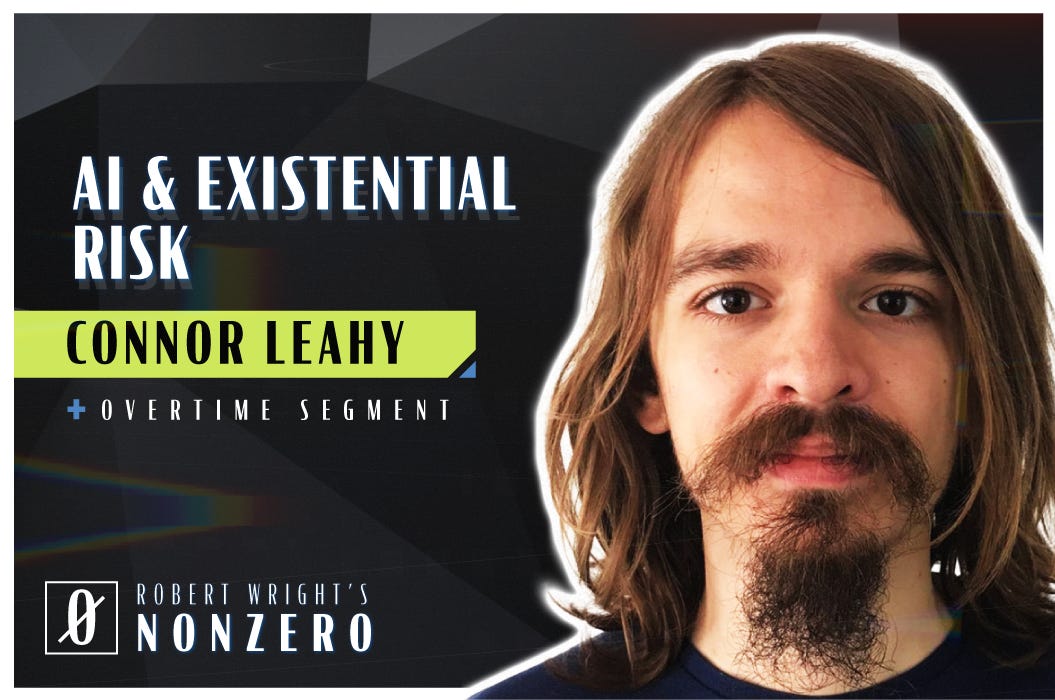Has the world’s chemical weapons watchdog been compromised?
Plus: Sinophobic Hysteria Award, AI updates, US lawbreaking in Syria, climate-change-fighting supercomputer, paid subscriber perks, and more!
Jose Bustani, former director general of the Organization for the Prohibition of Chemical Weapons, delivering a statement about possible OPCW corruption that the Trump administration prevented him from submitting to the UN Security Council.
The US has destroyed its last remaining chemical weapon, a rocket containing sarin nerve agent, the White House announced last week. Under the Chemical Weapons Convention, which went into effect in 1997, a few days after the Senate ratified it, Washington was required to eliminate its stockpiles by September 30 of this year. All of the world’s declared chemical weapons have now been eliminated.
But that doesn’t mean we can declare “mission accomplished” for this pathbreaking arms control agreement, which provided a more sophisticated enforcement mechanism than any previous global arms pact (and which some of us are old enough to have championed at the time).
For one thing, a number of countries, including Syria, Russia, and North Korea, have been accused of using chemical weapons in recent years (though the accusations involving Russia and North Korea are about assassinations, not the kind of mass attacks that took place in Syria). And secret stockpiles may exist in these and other countries. So the Organization for the Prohibition of Chemical Weapons—the institution set up to enforce the convention—needs to remain vigilant.
Which leads to the other, deeper, cause for concern. It’s not clear that the OPCW is secure from political interference by powerful nations. Two incidents, one two decades ago and the other much more recent, raise troubling questions:
1) In 2002, Jose Bustani, the OPCW’s first director general, was forced out of office, apparently because he was pursuing inspections in Iraq that could have undermined America’s rationale for invading the country. Before the ouster, according to Bustani, John Bolton, then in the Bush administration, implicitly threatened to harm his family if the OPCW persisted with its Iraq initiative.
2) There is evidence that the Trump administration pressured OPCW officials to downplay the doubts of some OPCW inspectors about a chemical weapons attack allegedly conducted by the Syrian government in the town of Douma in 2018. Because Trump had responded to initial reports of the attack by bombing Syria, he had an interest in suppressing any suggestion that it had been a false flag operation conducted by jihadist rebels in hopes of drawing such an American response.
Bustani, among other observers, believed that evidence of political interference in the Douma investigation was strong enough to warrant an inquiry. In particular: Internal OPCW documents released by Wikileaks showed that the initial draft report on Douma, prepared by the OPCW’s on-site inspectors, had been revised by higher ups to bring it into line with Trump administration claims. The OPCW inspector who authored the draft report, as well as another OPCW inspector who prepared a supplementary report, protested the revision.
OPCW officials have tried to discredit these whistleblowers, but Bustani came out of retirement to support them. In testimony he prepared for the UN Security Council, he said they had provided “compelling… documentary evidence of highly questionable and potentially fraudulent conduct in the investigative process.”
This testimony was never delivered. The Trump administration, along with allies on the Security Council, blocked Bustani from presenting his views. But video of his never-officially-delivered testimony exists, and in it he says: “Serious questions are now being raised over whether the independence, impartiality, and professionalism of some of the organization’s work is being severely compromised, possibly under pressure from some member states… These concerns are emanating from the very heart of the organization, from the very scientists and engineers involved in the Douma investigation.”
There’s no way of knowing for sure what happened at Douma in 2018, but any true journalist who examined the Wikileaks documents and related evidence would have to conclude that, as we used to say in journalism, “there’s a story here”—a controversy, complete with whistleblowers, about the possible corruption of a very important institution. Yet the mainstream media—the New York Times, the Washington Post, and so on—has completely ignored the story. It’s hard to say whether that reflects indifference to the integrity of global governance or some other factor, such as fear of blowback. (The non-MSM journalist who has most doggedly covered the story, Aaron Mate, has been tarred as an “Assad apologist.”)
Some Americans have raised questions about whether China, an increasingly powerful player in international institutions, kept the World Health Organization from vigorously examining the origins of the Covid pandemic. They’re right to do so. The integrity of WHO is critically important in an age when the threat of pandemics looms large. But one reason that threat looms large is that advances in biotechnology make it easier for researchers to engineer new pathogens that could leak from any number of labs in any number of countries. And another thing advances in technology are doing is making it easier for people to create weapons of mass destruction—bioweapons and chemical weapons in particular.
So we need stronger instruments of international arms control. And they need to have integrity. It’s in America’s profound long term interest to help guard that integrity—to restrain itself, as well as other nations, from corrupting institutions that are critical to international security. And it’s the patriotic duty of American journalists to help.
Attention NZN members! This week we bring you three paid-subscriber perks:
1. Early access to Bob’s conversation with Connor Leahy, CEO of Conjecture AI, about the perils we’ll face if we fail to create AI that’s aligned with human values and goals. Leahy thinks those perils are very big, and he says Conjecture is trying to create such “aligned” AI. Paid subscribers also get access to the Overtime segment of the conversation, which won’t be part of the public podcast when that airs.
2. The latest edition of Earthling Unplugged, Bob’s conversation with NZN staffer Andrew Day about items from the Earthling and not-totally-unrelated stray thoughts.
3. The latest edition of the Parrot Room, Bob’s after-hours conversation with Mickey Kaus. Usually, Bob talks to Mickey Friday night, but this week they taped on Thursday, so you can listen to the episode here.
This week’s award for exceptional achievement in Sinophobic hysteria goes to Gordon Chang. Chang (perhaps best known for predicting in his 2001 book The Coming Collapse of China that the Chinese government would fall in 2011—and then, in 2011, revising that prediction to 2012) appeared on the Fox News show Sunday Morning Futures. There he was asked by host Maria Bartiromo about Chinese migrants crossing America’s southern border. Here is part of his response:
“[A]mong them are packs of males… who are of military age, not coming with family groups, pretending not to speak English, and engaging in Chinese military rituals like drinking blood… [T]hese are saboteurs coming into America to wage war on the United States on the first day that there is war in Asia.”
Bartiromo reacted with visible shock and horror, but on Twitter some China experts were unconvinced that America faces an influx of blood-drinking, crypto-English-speaking migrants who will wreak havoc once activated by their Beijing masters. Unfortunately, Bartiromo has an audience of more than a million, and sober China experts don’t.
This week Spencer Ackerman, writing in his newsletter Forever Wars, became one of the very few American journalists to have examined America’s involvement in Syria in light of international law. His conclusion:








